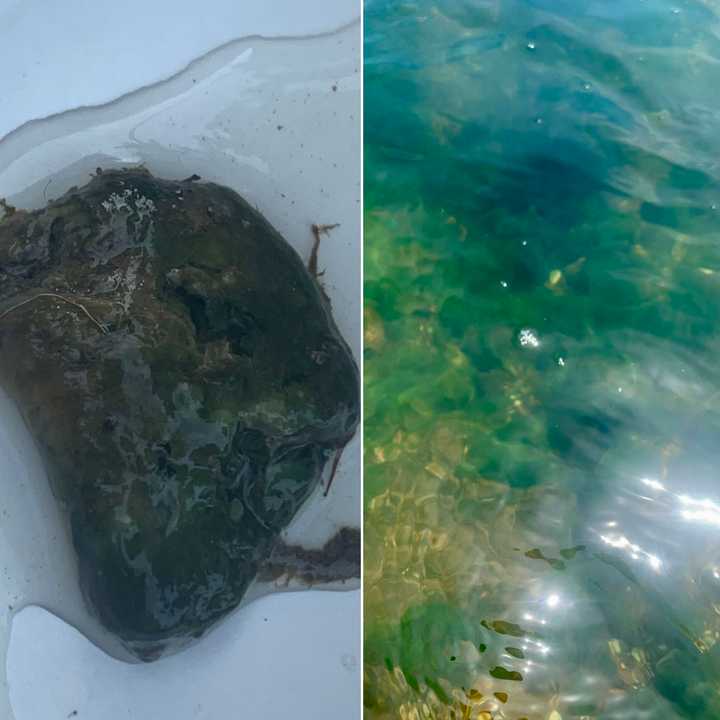A new alert was issued by the Maryland Department of Natural Resources cautioning that the algae - which was collected from Williamsport to Riley Lock - could be harmful to animals if ingested.
This week, a second advisory was issued for the Cumberland area.
According to officials, "the algae has the appearance of mats of fine, green cotton and can be found along the shoreline, attached to rocks or plants, on the bottom or floating downstream."
Animals should stay out of the water in the river until further notice, they added.
"Harmful algal blooms of cyanobacteria (also called blue-green algae) are microscopic organisms that can be found naturally in all types of water," according to the agency.
"Sometimes cyanobacteria rapidly grow out of control, or bloom. Some of these blooms produce toxins (poisons) that make people and animals sick.
"Cyanobacterial blooms are most commonly found in fresh water, such as lakes, rivers, and streams."
Pets and livestock can get very sick and die within hours to days after swallowing cyanobacterial toxins. The toxins can be in the cyanobacteria or in the water.
The incident is being monitored by the department, and more details are expected to be released when conditions improve.
Want breaking news in the DMV as it happens, or want to contribute? Join the DMV All Incidents Facebook group.
Click here to follow Daily Voice Owings Mills and receive free news updates.
